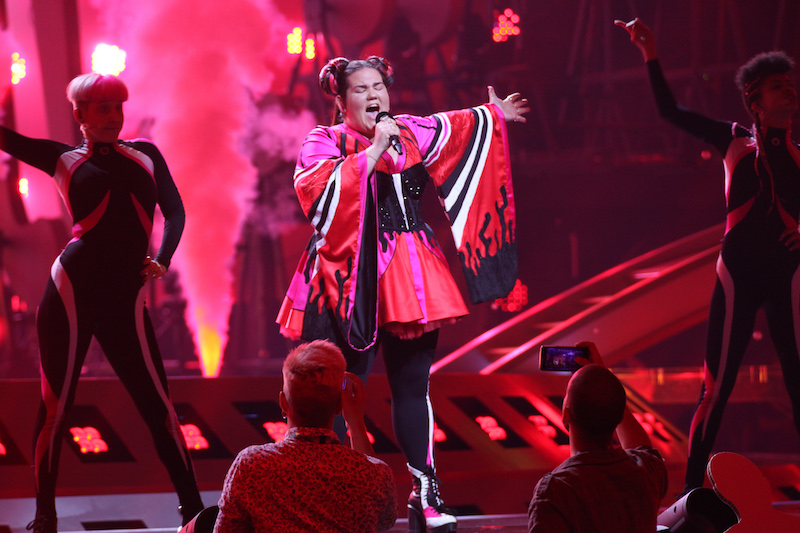Just ten days ago, I stood in a crowd of over 3,000 Jewish teens watching Noa Kirel perform her hit Eurovision song, “Unicorn.” Although each individual did not necessarily know every word to her music, many were captivated by her performance, the Hebrew lyrics and by having an Israeli pop-star perform before their eyes. While the song itself might not have been representative of Israeli culture, the Eurovision song performance gave thousands of American Jews a new appreciation for Israeli pop culture.
This past week, the European Broadcasting Union released a statement announcing that they would be re-assessing the Israeli submission for the 2024 Eurovision Song Contest. The submission, entitled “October Rain,” is a powerful ballad that alludes to the Israel-Hamas war. However, the Eurovision rules clearly state that they will not accept songs with political messages in hopes to maintain a neutral position. Israel responded, stating that if the song was not accepted, they would withdraw from the competition.
Although the rejection of the song would be extremely disappointing, Israel has the responsibility to participate in Eurovision this year to ensure they can continue to promote their cause on a world stage and maintain their connections with international Jewish youth.
Approximately 180 million people view the Eurovision competition every year. Each individual, even if Israel didn’t compete with a political song, would have the opportunity to witness Israel’s strength and desire to continue building peaceful relationships with the other European countries.
Many say that the Eurovision Board’s decision would be hypocritical, especially considering that Ukraine’s song was accepted when it suggested political opinions about the Russia-Ukraine war. The song, entitled “Stefania,” was originally written before the war broke out, and is about someone’s memories of their mother. However, after the beginning of the war, the musicians said that many people began to understand the song as speaking about “Mother Ukraine” and considered it the “anthem of the war.”
Israel’s government should be aware of the conflicting opinions that often surround the conflict in the Middle East. As always, they should continue to take the high road, and hopefully continue to earn themselves a positive reputation from other countries and viewers.
Within the last ten years, Israel produced hit Eurovision songs such as “Toy” by Netta, “Golden Boy” by Nadav Guedj and “Set me Free” by Eden Alene. Though these songs are not only wildly popular in Israel, they can be found playing for Israeli dances at Jewish summer camps across the United States. For example, the official “Golden Boy” video on Youtube has over 12 million views, and the artist Netta has over 758,000 global monthly listeners– their reach extends far beyond the borders of Israel.
While other aspects of Israeli culture such as food, language and religious connection are difficult to recreate in the diaspora, pop culture can easily be incorporated into our lives. These songs provide a look into Israeli culture that so much of the American-Jewish population would not otherwise have, and it is extremely important for Israel to continue producing these hits.
I understand that Israel and many others are pushing to withdraw from the competition as a whole because they want to make a strong statement to the outside world. However, this would only lead to another opportunity for people to criticize Israel and villainize the country.
While I empathize with the Israeli upset surrounding the Eurovision rejection, I urge everyone to consider the ramifications of withdrawing from the competition and the positive consequences of their participation. Israel can truly only reap benefits from their participation – they can gain a connection with the Diaspora population and continue to prove their resilience to the rest of the world.














